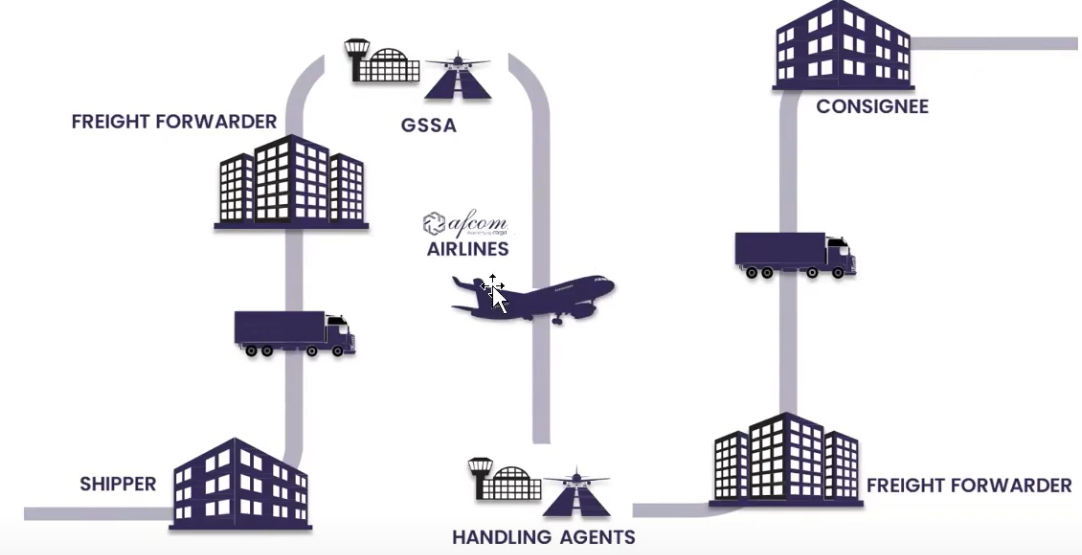Afcom Holdings is betting on building an airport-to-airport cargo business at a time when the market is starved for dedicated capacity. With guaranteed revenues, high load factors, and aggressive fleet expansion, the company sits squarely on strong aviation tailwinds.
Industry Tailwinds
-
Structural Growth – Aviation giants like Boeing and Airbus expect air cargo to grow 5–6% annually worldwide. In Asia, that number jumps to 6–7%.
-
Shift from Sea to Air – Freight rates are firming up as cargo shifts from sea to air due to conflicts and supply-chain shocks.
-
Capacity Gap in India – India has very few dedicated cargo charters, leaving a huge supply-demand imbalance for players like Afcom.
Financials: Each Plane Is a Profit Center
-
FY25 Revenue: ₹239 crore (up 62% YoY)
-
EBITDA: ₹69 crore (up 92% YoY)
-
PAT: ₹19 crore
-
FY26 Guidance: ~₹1200 crore topline with 5 aircraft
- Debt/Equity: 0.14
- ROCE: 36%
Put simply, each plane generates ₹65–80 crore in annual EBITDA.
On these projections, Afcom’s forward P/E falls from ~47x today to ~10-11x — a dramatic rerating opportunity if execution holds.
The Setup: Global Trade Is in Flux
Geopolitical conflicts have thrown global trade off balance. Shipping lanes are clogged, sea routes through West Asia and the Suez–Hormuz corridor are disrupted, and exporters are scrambling for alternatives.
Guess what’s benefiting? Air cargo.
And in India — where pure freighter airlines are scarce — this disruption has created a golden opportunity. One company that’s seizing it is Afcom Holdings.
This backdrop makes Afcom’s niche positioning especially attractive.
Business Model: Simple but Scalable
Afcom operates as a pure freighter airline. Unlike passenger carriers that also load belly cargo, Afcom’s planes are dedicated to freight. This allows it to handle:
-
Over-dimensional machinery
-
Electronics and garments
-
Hazardous cargo such as lithium batteries
-
Perishables requiring dry ice or special handling
But here’s the real differentiator: Afcom doesn’t chase cargo directly.
Instead, it partners with General Sales & Service Agents (GSSAs) in India, Hong Kong, Singapore, Japan, Korea and beyond. These agents bring in business from freight forwarders like DHL and Blue Dart — and Afcom just flies it airport-to-airport.

From the shipper to the freight forwarder, through GSSAs (General Sales & Service Agents) and handling agents, onto the airline, and finally via another freight forwarder to the consignee. Afcom’s business is focused purely on taking cargo sourced from GSSAs and delivering it to handling agents at the destination airport, making it a critical link between sales agents and ground operations. This setup explains why most shippers don’t book directly with airlines: each player adds a specific service such as booking space, consolidating loads, clearing customs, or managing airport operations. By specializing in this link and working closely with GSSAs and handling agents, Afcom Airlines extends its reach, keeps sales costs low, and coordinates end-to-end cargo flow — making the movement of goods across borders faster, more efficient, and more reliable.
Built-in Risk Protection:
Each flight carries a Minimum Guaranteed Return (MGR) of about 50% of revenue from these GSSAs. Even if a plane flies half-empty, Afcom still books half the revenue. This drastically lowers the risk profile and provides visibility on cash flows.
Fleet Expansion & Scalability: 2 → 5 Aircraft
Afcom currently operates three Boeing 737-800 freighters, each with a 22-ton payload capacity. Two more are being added this financial year, taking the fleet to five.
Key Metrics Per Aircraft (conservative assumptions):
-
Each aircraft is capable of generating ₹18–20 crore/month revenue at a conservative 75% load factor
-
EBITDA margin: 30–34%
-
Utilization: 9 hours/day (but can reach 17–18 hours/day)
With five aircraft, Afcom holdings expects ~₹1200 in annual revenue. In reality, current load factors already hover at 95%+, suggesting upside beyond guidance.
Strategic Shift Ahead:
By FY26, Afcom plans to induct wide-body Boeing 777 freighters. These larger aircraft will unlock long-haul routes and higher-margin global lanes. The company has also expanded its Indian base from Chennai to Bengaluru, giving it additional reach and redundancy.
Leadership: Aviation Depth + Operational Discipline
At the helm is Captain Deepak Parasuraman, an experienced aviator. Joining him are:
-
Kannan Ramakrishnan, with nearly two decades in premium customer businesses
-
Wg. Cdr. Jaganmohan Mathena (Retd.), ex–Indian Air Force pilot, bringing deep technical and operational expertise
This blend of industry knowledge and execution capability gives Afcom a competitive edge in a market with high entry barriers.
Why Afcom Holdings Stands Out
-
Pure-play freighter airline in a capacity-starved Indian market
-
Risk-protected revenue via 50% Minimum Guaranteed Returns from GSSAs
-
Asset-light growth through dry-leasing rather than ownership
-
First-mover advantage in non-scheduled operations, enabling flexible routing
-
Massive demand tailwinds from global supply-chain disruptions and shift to air freight
Risks to Monitor
-
Dependence on GSSAs: Afcom’s revenue visibility depends on agent agreements.
-
Geopolitical normalisation: If sea routes reopen and stabilize, air freight demand could soften.
-
Execution risk in fleet expansion: Scaling from 2 to 5 aircraft rapidly requires tight operational controls.
-
Regulatory risk: Non-scheduled operations enjoy flexibility but must eventually migrate to scheduled services as fleet size grows.
